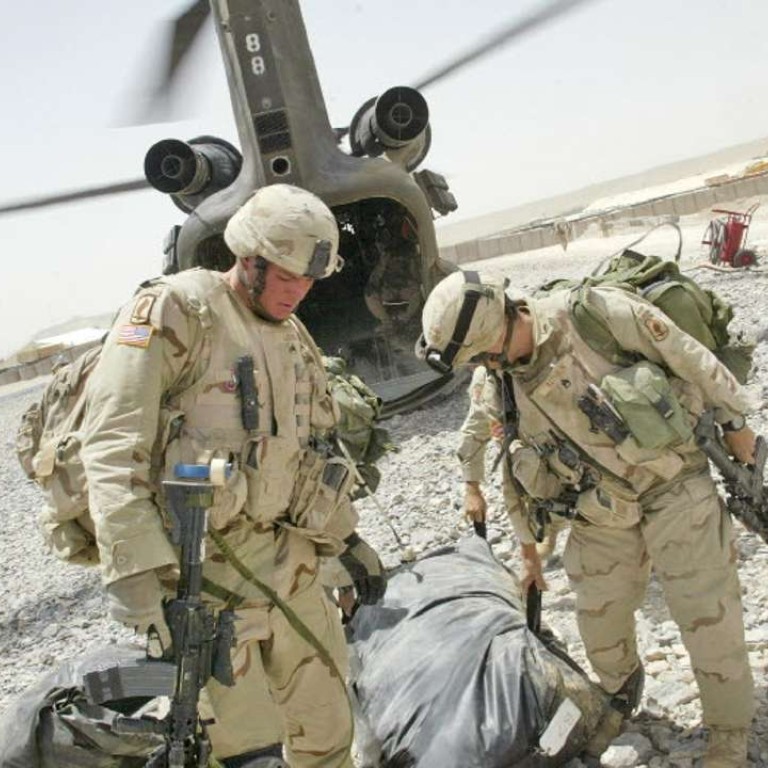
International donors pledge US$15 billion to help steer Afghanistan toward stability
President Ashraf Ghani hailed a “remarkable day” and vowed that his government would fulfil its commitments
International donors pledged US$15.2 billion at a conference in Brussels on Wednesday to get Afghanistan through the next four years, urging the Taliban to make peace after years of war.
As fresh fighting raged in the strategic northern city of Kunduz, Afghan President Ashraf Ghani was in the Belgian capital seeking aid from officials from 75 countries and more than 20 global organisations.
Despite fears of donor fatigue due to the Syria war, the amount pledged is only slightly less than the US$4 billion a year that world powers promised at the last Afghanistan conference in Tokyo in 2012.
“Some were sceptical that we are going to face donor fatigue after 15 years,” EU foreign policy chief Federica Mogherini told a press conference alongside Ghani after the conference.
It is our responsibility to carve a future and deliver. That means also proposing an end to aid, not a perpetual dependence on aid
“And here we are today being able to announce that international countries pledged ... US$15.2 billion, which is exceeding our most rosy pictures of even yesterday.”
The EU was the biggest pledger with US$5.6 billion, followed by the United States. In return for the money, Afghanistan promised reforms on corruption and human rights, and also agreed to take back migrants from Europe more quickly.
Ghani hailed a “remarkable day” and vowed that his government would fulfil its commitments.
“It is our responsibility to carve a future and deliver,” he said. “That means also proposing an end to aid, not a perpetual dependence on aid.”
Afghanistan remains dependent on foreign cash and support from a limited Nato military presence.
For security, Nato nations already committed at a summit in Warsaw in July to maintain troop numbers in Afghanistan at around 13,000 and uphold a pledge of US$5 billion a year to fund local forces until 2020.
But the country remains wracked by violence. Afghan forces battled the Taliban for a third day in Kunduz on Wednesday as food ran short and scores fled the city, witnesses said. In Kabul a suicide bomber targeted a minibus carrying government officials, wounding four people, a day after a US soldier was killed by a bomb in the east.
The announcement came was almost 15 years to the day since the start of the US-led operation to topple the Taliban after 9/11, and US Secretary of State John Kerry urged Taliban militants to make an “honourable” peace with Kabul.

He said they should follow the “model” example of Gulbuddin Hekmatyar, the notorious Afghan warlord and US-designated “global terrorist”, who signed a peace deal with the Afghan government in September.
Moves for a peace settlement also got a push from Mogherini, who said a dinner of regional players including China, India and Pakistan on Tuesday had “found common ground” for the Afghan peace process. She added that the EU “will try to facilitate this as much as possible in the coming months”.
In exchange for the money pledged in Brussels, donors will expect the Kabul government to make efforts to tackle spiralling corruption and waste, while working on political reform and human rights.
The United States has spent around US$110 billion on Afghanistan’s reconstruction since 2001, more than the cost of the Marshall Plan that rebuilt a devastated Europe after the second world war, but with limited results.
Sayed Ikram Afzali, executive director of Integrity Watch Afghanistan, the sole anti-corruption watchdog until now, said donors should have set tighter conditions.
“This very conference itself is a lost opportunity in terms of fighting corruption because a lot could have been done better in terms of setting up benchmarks,” he said.
On the eve of the conference the EU and Kabul announced they had struck a controversial deal to speed up Afghanistan’s taking back of migrants from Europe, which faces its biggest refugee crisis since the second world war.
The plan involves possibly building a dedicated terminal for deportees at Kabul airport. EU officials have however denied that aid pledges will depend on Kabul accepting the return of 80,000 asylum-seekers.
Afghan civil society groups have criticised the plan.
“We call on the European countries but also the Afghan government to suspend the deportation of Afghan refugees who are in Europe,” said Maiwand Rahyab, executive director of the Afghan Institute for Civil Society.

.png?itok=arIb17P0)